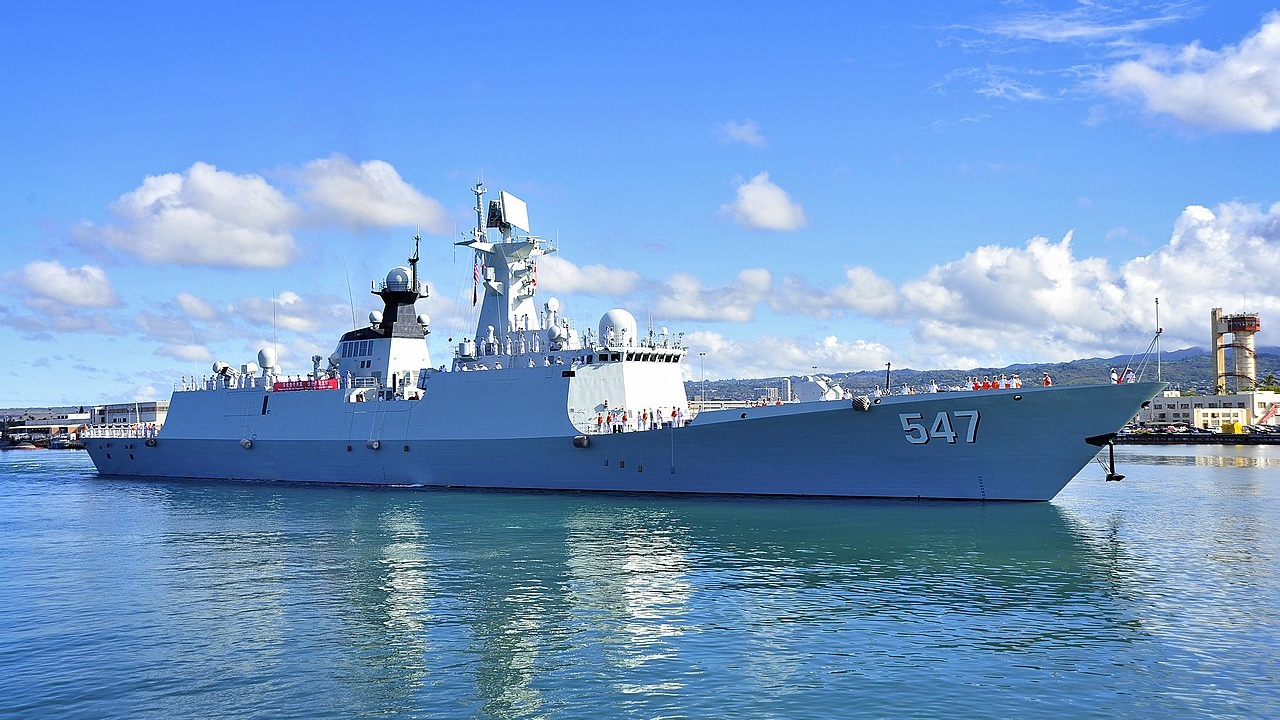
China Held A Secret Military Drill In The South Pacific—And Australia Is Furious
More concerning, perhaps, than the poor etiquette is the Chinese presence itself. Previously, China had never conducted such extensive drills in the Tasman Sea.
Australia first learned of China’s recent live-fire naval drills—executed in the Tasman Sea between Australia and New Zealand—not from China, but from a commercial airline pilot. The secretive drills forced dozens of flights to be diverted, and raised hackles over the Chinese presence, and etiquette, in the Tasman Sea.
Cannon Fire Without Warning
“The first notice of the Chinese drills in the Tasman Sea came in a radio transmission on an emergency frequency monitored by a Virgin Australia passenger jet on Friday,” CNN reported. The Virgin pilot who heard the transmission then passed the information along to Australia’s aviation authorities. A “hazard alert” was issued. And as a result, 49 aircraft diverted their routes, to avoid the three Chinese vessels conducting the live-fire drill. Naturally, Australia and New Zealand were irked that the Chinese failed to issue a Notice to Airmen (NOTAM) about the firing of live weapons in an airspace that commercial jets commonly traverse.
For its part, China claimed that the exercises were conducted in international waters, complied with international law, and in no way affected aviation safety. Beijing also accused Australia of “hyping up” the naval drills and of making “unreasonable accusations.”
The Chinese are correct in that the Tasman Sea drill did take place in international waters, and were in compliance with international law—which holds that warships only have a legal obligation to notify coastal nations of a live firing event if the event occurs within 300 nautical miles of the coast. But the Chinese still could have offered a heads-up—and certainly could have made a better effort to avoid commercial airline routes.
“It’s not aggressive, it’s just what warships do on the high seas,” wrote former Australian naval officer Jennifer Parker. Although, “indications from flight diversion suggest that the Chinese warships may have been too close to civilian air transit routes. If this is the case, it represents poor practice that warrants diplomatic discussion.”
Others were less diplomatic in their assessment of China’s behavior. “Forcing aircraft to divert from their internationally recognized routes is considered unsafe and irresponsible,” said Carl Schuster, a former U.S. Navy officer.
Australian Prime Minister Anthony Albanese also aired frustration, saying that China “could have given more notice” to the Australian government. Across the Tasman Sea, Judith Collins, the New Zealand defense minister, said “there was a warning to civil aviation flights, that was basically a very short amount of notice, a couple of hours, as opposed to what we would consider best practice, which is 12-24 hours’ notice, so that aircraft are not having to be diverted when they’re on the wing.”
International Implications
More concerning, perhaps, than the poor etiquette is the Chinese presence itself. Previously, China had never conducted such extensive drills in the Tasman Sea. “We’ve certainly never seen a task force or task group of this capability undertaking that sort of work,” Collins said.
But the drills are consistent with China’s increased assertion in the region—and what one might expect from a nation that is amidst one of world history’s most ambitious shipbuilding sprees. Quantity-wise, China now has the world’s largest navy, which can be expected to be used to contest an increasing number of territorial disputes.
About the Author: Harrison Kass
Harrison Kass is a senior defense and national security writer with over 1,000 total pieces on issues involving global affairs. An attorney, pilot, guitarist, and minor pro hockey player, Harrison joined the US Air Force as a Pilot Trainee but was medically discharged. Harrison holds a BA from Lake Forest College, a JD from the University of Oregon, and an MA from New York University. Harrison listens to Dokken.
Image: Wikimedia Commons.